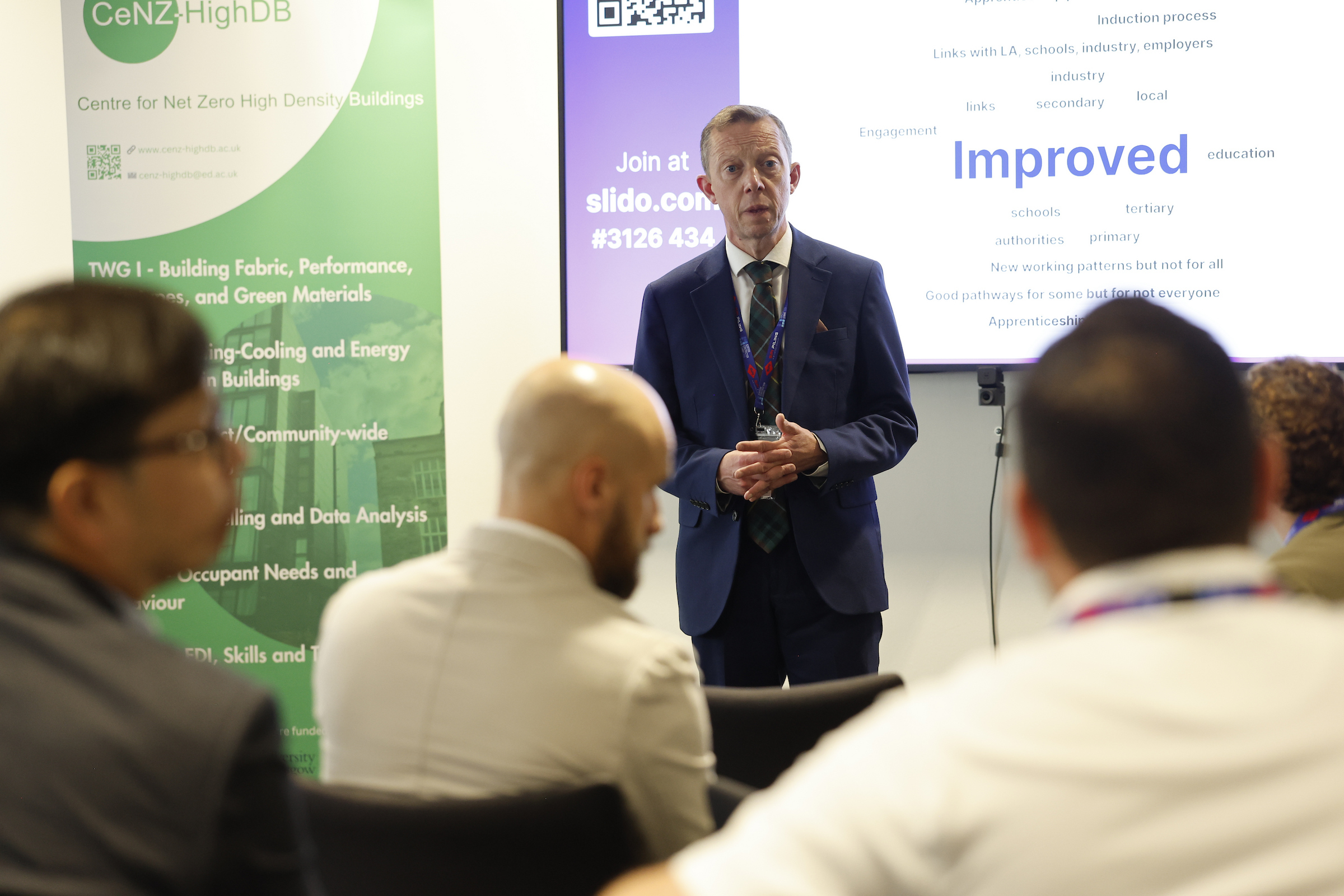Paul McDevitt: Urgent action needed to avoid recruitment cliff edge

Paul McDevitt
Scottish Construction Summit programme co-ordinator Paul McDevitt calls for immediate action to secure the future of the Scottish construction sector in the face of a recruitment cliff edge.
Scotland’s construction industry is facing one of the most pressing challenges in its modern history — a deepening recruitment and retention crisis that threatens to undermine the nation’s ability to deliver critical infrastructure, housing, and energy projects.
At the recent Scottish Construction Summit in Glasgow, more than 250 delegates from across the sector gathered to confront the growing talent gap head-on. With a stellar line-up of speakers, including Professor Steve Petrie and Alan Tait, the Summit identified Recruitment and Retention as one of four headline themes shaping the future of Scottish construction.
The discussion was candid and, at times, sobering. While the sector is showing resilience and innovation, the data exposes major cracks in its workforce pipeline — gaps that can no longer be ignored.
A Reality Check for Construction Leaders
During the Summit, I shared results from a survey conducted a few years earlier among 100 industry leaders. Asked a simple but telling question — “If you had a son or daughter, would you recommend a career in construction?” — only one respondent said yes, and even that came with a caveat.
That alarming response speaks volumes about the industry’s internal confidence and external image.

Scottish Construction Summit speakers (from left) Paul McDevitt, Alan Tait, Graham Stewart, Anne Johnstone, Mark Farmer, Steve Petrie and Gordon Mitchell
The same sentiment emerged recently during a leadership development programme that I held for a multidisciplinary consultancy. The eight participants, ranging from graduate apprentices to senior directors, were asked how they had first entered construction. Every one of them said the same thing — “by default.” None had planned a career in the sector.
Such insights are a wake-up call. If existing professionals view the industry as something they stumbled into rather than chose, how can we expect to attract the next generation with purpose and pride?
The Numbers Behind the Challenge
The Construction Industry Training Board (CITB) has laid out forecasts that paint a stark picture of the labour shortfall. Scotland requires an additional 3,590 construction workers annually between 2025 and 2029 just to meet current demand. Yet the workforce already falls short by around 31,000 people, and at least 26,100 more workers will be needed by 2028.
Apprenticeship recruitment — a key lifeline for future talent — continues to lag behind targets. Between August 2023 and May 2024, only 855 construction-related apprentices were recruited against a CITB annual target of 2,240. High dropout rates during training further compound the problem.
Perception Problems — and Promising Shifts
Despite the challenges, there are encouraging signs that public perception is starting to change. CITB data indicates growing positivity among young people, parents, and careers professionals toward construction as a viable and rewarding career.
Among young people aged 16–24, 68% now hold a positive view of construction careers — a marked improvement — yet only 31% would actually consider working in the sector. The barriers are familiar: outdated stereotypes about physical demands, safety concerns, and pay.

Alan Tait also facilitated one of the afternoon's breakout sessions on Recruitment & Retention
The reality is quite different. Construction today offers roles that are increasingly digital, technical, and managerial — often paying above national averages and combining innovation with meaningful impact.
However, there remains a serious visibility gap. Nearly half (47%) of young respondents said construction was never mentioned in their school careers advice, representing a massive, missed opportunity for early engagement.
Parents, traditionally seen as a major influence on career choices, present an untapped asset. 65% hold positive views of the industry, and 79% would support their children pursuing a construction career. Interestingly, more than 40% said they would prefer their child to “earn while they learn” through apprenticeships rather than follow the university route — signalling opportunity for targeted outreach.
Schools, Employers, and the Power of Early Engagement
One of the most striking statistics from recent CITB research is that construction is now listed among the top five career preferences for pupils by GCSE age (Year 11). This milestone owes much to employer-led initiatives across schools and colleges, where real-life examples, site visits, and mentoring are helping to reshape perceptions.
An overwhelming 97% of companies that engage with educational institutions report direct benefits — from stronger talent pipelines to improved diversity and retention outcomes. Career guidance practitioners also share this optimism: 68% now say their students view construction positively, up from 64% in 2022. While most feel equipped to advise students, they want more up-to-date information about the range of opportunities available.
These findings reinforce one clear message: when the sector engages early, consistently, and authentically with young people and educators, perceptions shift — and career pathways open.
“If Not Now, When?”
The message from the Scottish Construction Summit was clear: the window for action is closing fast. The industry must change both how it presents itself and how it supports those within it.
That means every business, large or small, should be working proactively with schools, local authorities, and education departments to promote construction as a modern, rewarding, and essential career.
It means showcasing the full spectrum of opportunity — apprenticeships that lead to engineering degrees, digital roles at the cutting edge of technology, and leadership pathways that help shape Scotland’s future landscape.
Above all, it means resetting the narrative from one of shortage and struggle to one of purpose, pride, and possibility.
If Scotland is to build the infrastructure of tomorrow, it first must build belief — in its people, its potential, and its place as a world-class construction nation.
- Paul McDevitt is managing director of McDevitt & Co - a business consultancy specialising in the development and growth of businesses across the construction sector













